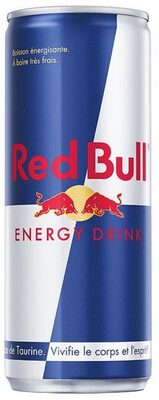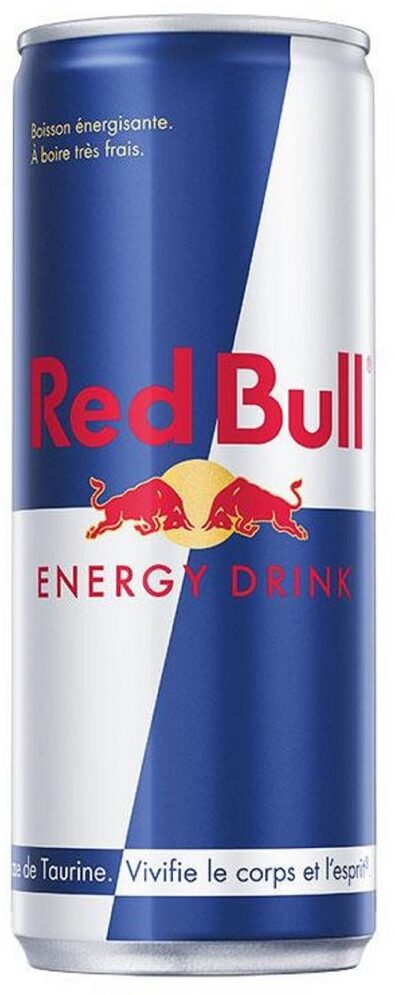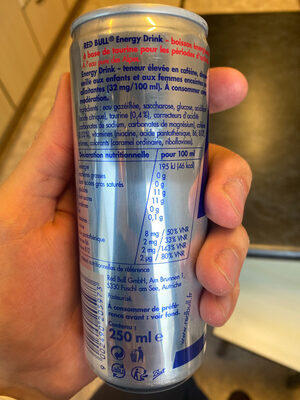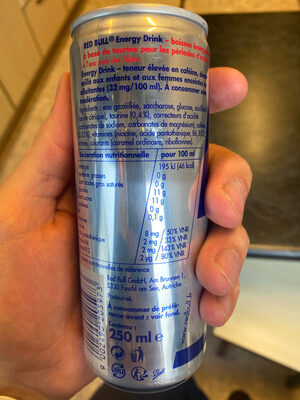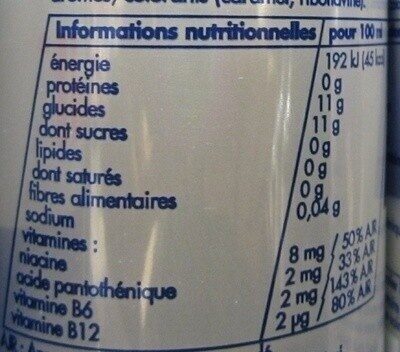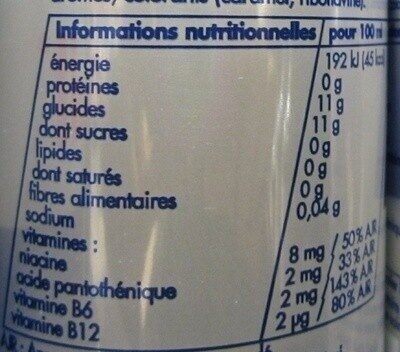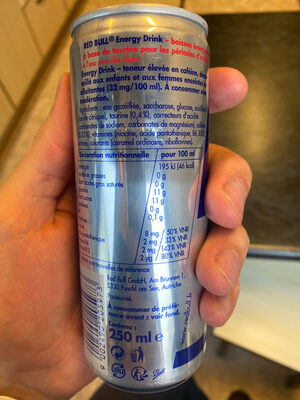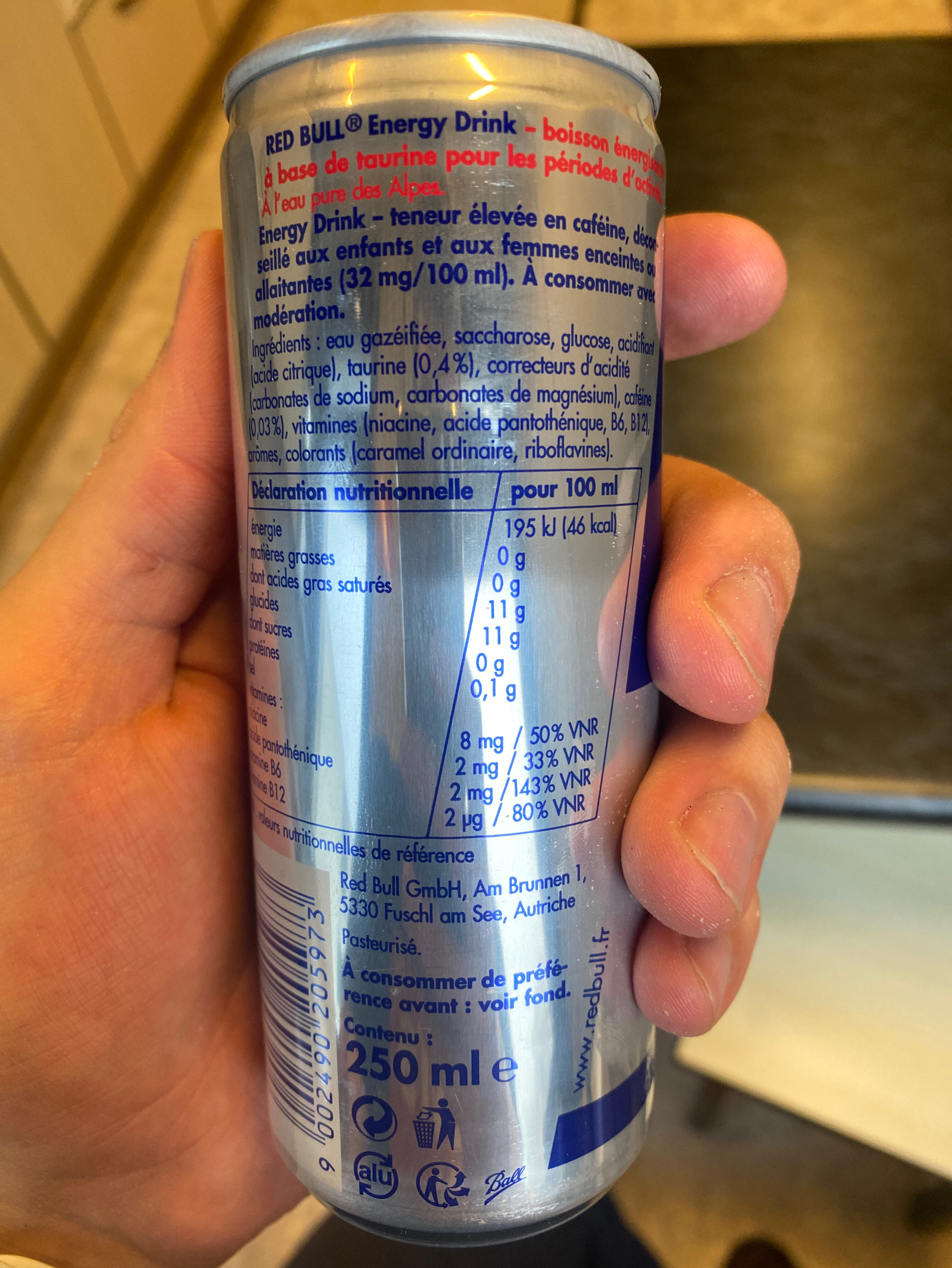Red Bull Energy Drink - 250 ml
Barcode: 9002490205973 (EAN / EAN-13)
Common name: Red Bull - Energy Drink
Quantity: 250 ml
Categories: Beverages, Energy drinks, Energy drink with sugar
Labels, certifications, awards:
No preservatives, Green Dot, Triman, Nocolorings

Origin of ingredients: Unspecified
Stores: Monoprix, Magasins U, carrefour.fr, Carrefour, Leclerc, Lidl
Countries where sold: Belgium, France, Germany, Spain, Switzerland
Matching with your preferences
Report a problem
Data sources
Product added on by stephane
Last edit of product page on by thaialagata.
Product page also edited by bislan76, bugmenot, d4ft, date-limite-app, driveoff, eatshalal, ecoscore-impact-estimator, fauzi2865, foodrepo, gabmiral, halal-app-chakib, hugoo, hugopeuze, inf, karbon, kiliweb, leroy1223, magasins-u, mandrake256, mentoschaud, openfoodfacts-contributors, quechoisir, roboto-app, scanbot, yuka.R1pwZUtxc2NxUHdSdXR0anpCN042TlI1Nkp5UFZscU9BUElzSVE9PQ, yuka.RzZzY0RyZ0VwUDBwcHNOZ29Cbi84OE4yeG9IemZYdUxBdWRJSUE9PQ, yuka.UUkwWktabFlpY1VqbWNJYnJ5ckV3ODlONW8rdVJ6MlNkK2t4SUE9PQ, yuka.UVlrWU52Z3VnZHNweXZFbjVDUFAzZjFVNTVLMkIwS2xGZUU2SUE9PQ, yuka.UWF0ZUhZWThqYWNTbWZRdTJ5cjMrY2xmOXJPRlYzeVFGOXMxSVE9PQ, yuka.V0tzZEFQVUZsTUFhbjhNYndSWGMzOWhKd1ptakJENnRjUHNWSWc9PQ, yuka.V1B4ZktxY3YvT0V3cGRzQ29qemsrdmdxKzdtZ2IxT0ZkN1VKSVE9PQ, yuka.VGFBTUhJQStuYVUwaS9ZUTF4MzNvZDlZemMrRlpsMjBOOFFMSWc9PQ, yuka.VktraE9aaFJoUHN0bE1kaHdRR085czRrK3J1UldHMnNOc1JLSVE9PQ, yuka.Vm84N0svME1tTVFHbk0wVndoYjF3c05aNGFhVFdFYnZMdWhPSVE9PQ, yuka.WDQ0Q1BLMVEvdm91eHRndzR6RFEwSTFUbllldmNrQ1RJT01oSVE9PQ, yuka.WFlvOVA3NHJuOEF3bVAwMTkwMks4ODlIeElDT1pubXNHYnNnSVE9PQ, yuka.YUlRTVM1eFltNklsdmRnVHdBUDVwdXhRMjVXMlZ6dVpKTmdSSVE9PQ, yuka.ZG9NckM2Z3dsS1locXMwZDlVaU8xL05SK29XWFZHT09EOG9ZSVE9PQ, yuka.ZVA4R1RLc3p1dlFRaFBZbjBSSEUvdkpweE1heFF6eTBNZmdjSVE9PQ, yuka.Zm9KUVNQVUM5cVVBdmRnZDd6aUl5L0l2eXNDMFlucXpEdW9PSWc9PQ, yuka.ZmE0T0ZvOFFnZjAzaWRraDVrTGFvTzkwNlpTMGJ6K0hkczVNSUE9PQ.
